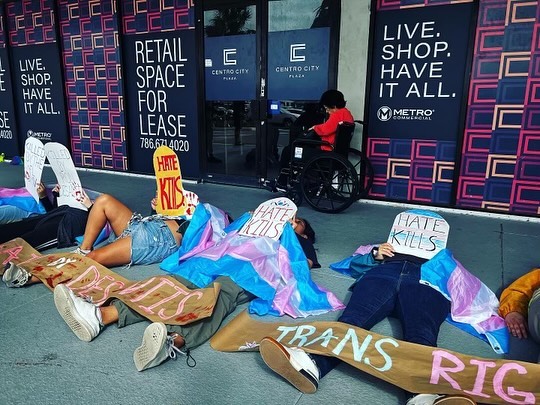Idaho Seek to Limit Gender-Affirming Care to Trans Women Prisoners

A new case concerning the access to gender-affirming medical care for transgender people who are experiencing incarceration is heading to the Supreme Court.
On May 7, Governor Brad Little of Idaho announced that the state had appealed a case that centers Adree Edmo, a trans woman incarcerated in Boise who requires gender-confirmation surgery, to the Supreme Court. Little’s announcement follows a 2019 appeals court ruling that denying Adree Edmo’s surgery would violate the Eighth Amendment’s protection against “cruel and unusual punishment.”
Lawyers representing Edmo contend that the surgery is a medical necessity, As the Boise Statesman reports, Edmo was first diagnosed with gender dysphoria not long after her initial incarceration and would soon start hormone treatment. In subsequent years, Edmo made other requests to affirm her identity, such as asking for women’s underwear and makeup. The Statesmen reports that most were denied.
In February 2014, Edmo created a petition sent to Corizon, the private prison’s healthcare contractor, that stated, “Need sex reassignment surgery ASAP,” which was denied. Later, Edmo attempted to castrate herself for the second time since being incarcerated in a men’s prison.
Five years later, in 2019, the Ninth Circut Court appeals took Edmo’s side and released an 85-page decision that stated: “the record before us, as construed by the district court, establishes that Edmo has a serious medical need, that the appropriate medical treatment is GCS [gender-confirmation surgery].” The Ninth Circuit added: “The responsible prison authorities have been deliberately indifferent” to Edmo’s dysphoria, to the point of constituting “cruel and unusual punishment.”
This case follows a series of transphobic laws passed in Idaho, including two bills passed in late March by Governor Brad Little: one that bars folks from changing the gender marker on their birth certificates and another that prohibits trans girls, women, and some intersex folks from participating in organized women’s sports, according to Them.
“At my direction, the State of Idaho has filed the necessary petitions with the U.S. Supreme Court to appeal the Ninth Circuit’s ruling requiring Idaho to pay for an inmate’s sex-reassignment surgery. The Ninth Circuit’s decision goes against the text and original meaning of the Eighth Amendment and contradicts more than four decades of Supreme Court precedent. We will vigorously litigate the Ninth Circuit’s unprecedented ruling at the Supreme Court because the taxpayers of Idaho should not have to pay for a procedure that is not medically necessary,” Little said in a written statement.
The Supreme Court has not yet decided whether to take up the case on gender-affirming care. The current term ends on June 30; the next one begins on October 5.
There have been several studies proving the gender-reassignment surgery offers transgender individuals validation and general well-being, while other studies have shown the increase of psychological risks with the refusal of such medical care. Edmo is one of the hundreds of transgender people who struggle with getting the medical assistance she needs.
According to Black and Pink, a national prison abolitionist organization, Adree Edmo is also looking for a penpal. Edmo, who is an enrolled member of the Shoshone-Bannock Tribes of The Fort Indian Reservation of Fort Hall Idaho, loves “talking and getting to know other people.” You can write to Adree by looking her up with her Black and Pink member number (9350) here.










